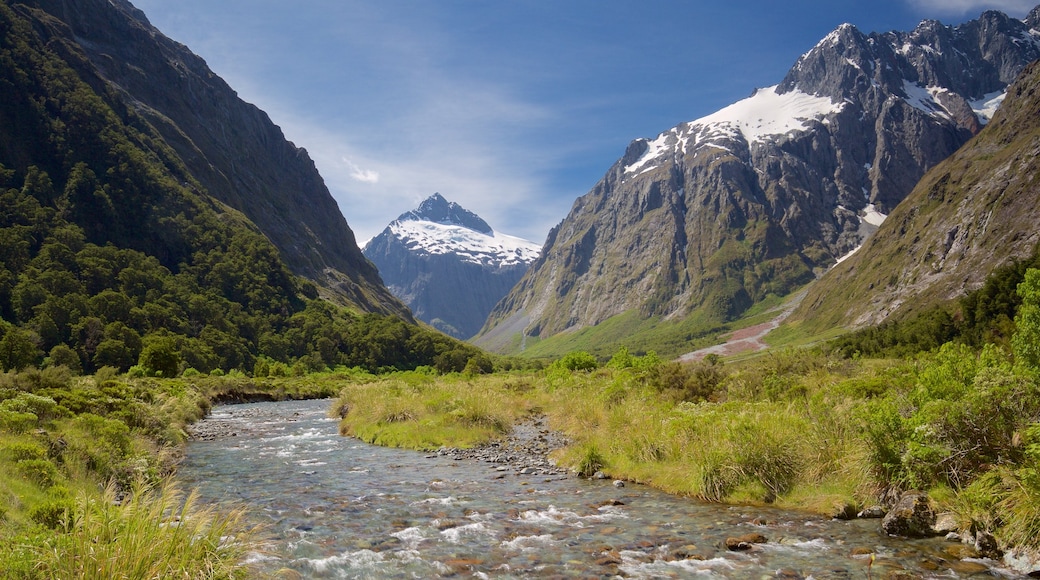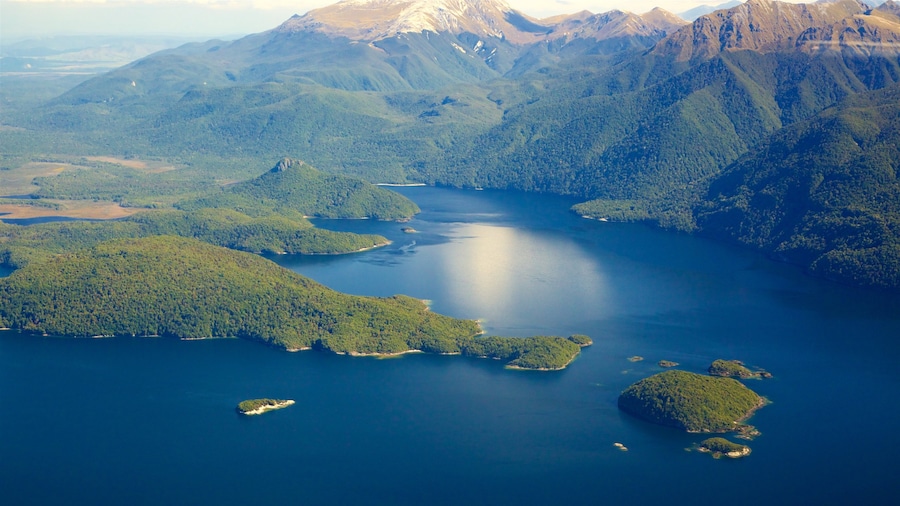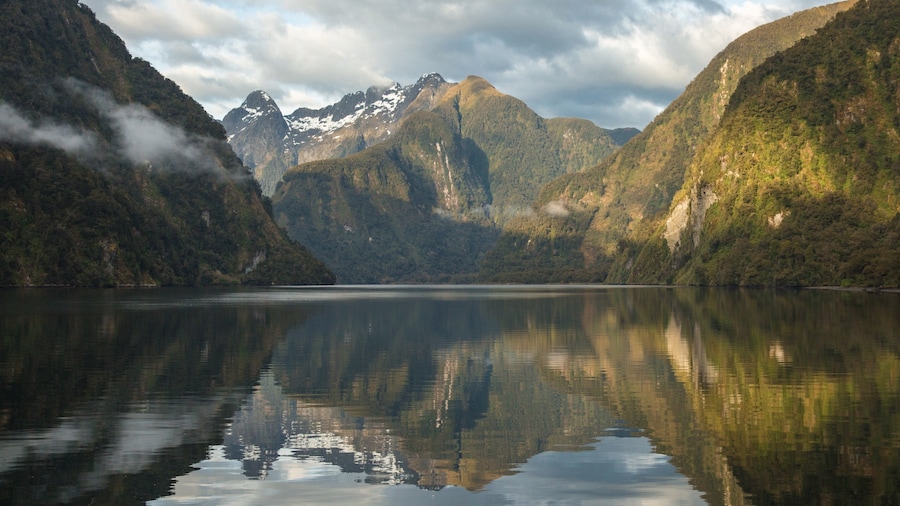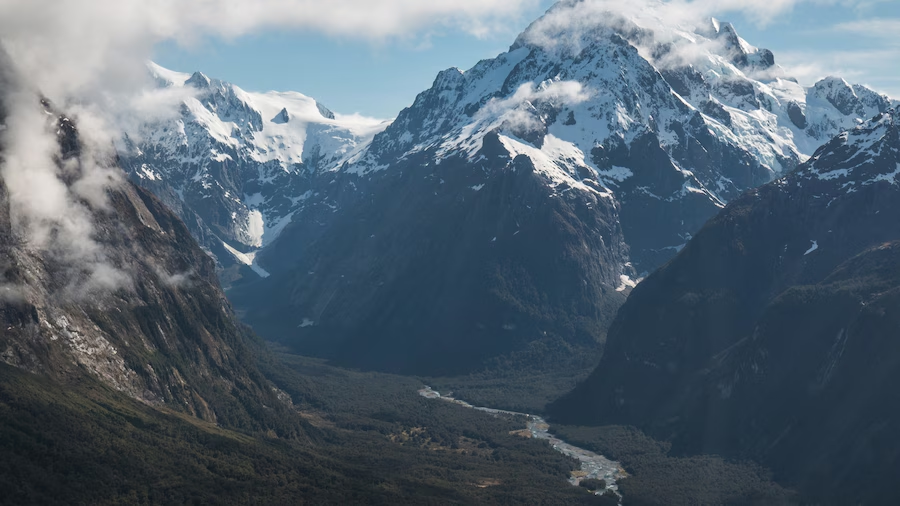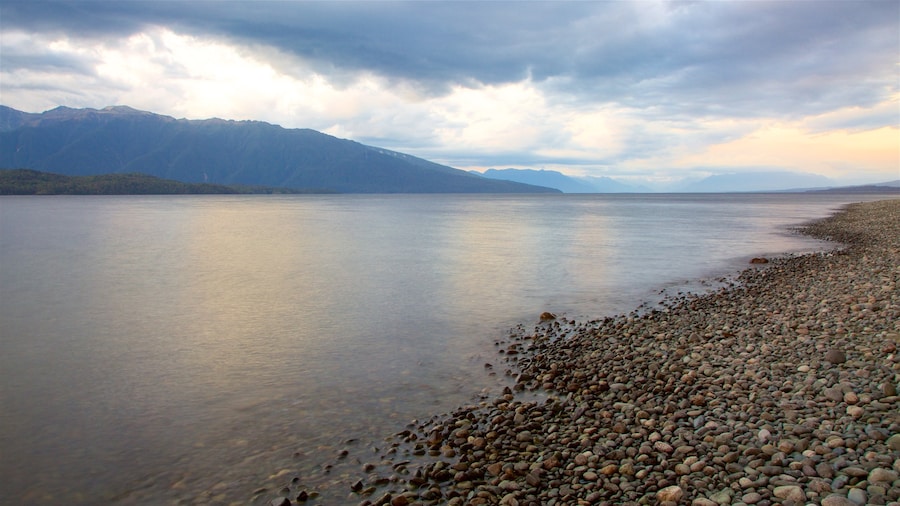Look out over New Zealand’s most photographed fiord and see the glaciers of the Darran Mountains from the alpine pass of Gertrude Saddle. Reaching nearly 4,700 feet (1,430 meters) altitude, the challenging day hike to this ridge attracts fit and adventurous nature lovers.
Follow the gradually ascending trail trough the Gertrude Valley. Its sub-alpine meadows are surrounded by sheer cliffs, making it a humbling experience. Once you’ve passed the bend in the upper valley, Gertrude Saddle comes in sight. From the valley's headwall, make your way up past the boulders. From here, the route is only marked by small stacks of stones. These cairns were made by other “trampers,” as the Kiwis call hikers, to mark the safest route up.
About halfway up, cross the Gertrude Stream and look up at the waterfalls tumbling over the sheer rock walls. A steep trail veers off to the right from Black Lake. Hold on to the fixed steel cables for support, especially in wet, windy and frosty weather.
Scramble up the last boulders to reach the ridge of Gertrude Saddle. Enjoy the jaw-dropping views of the surrounding Darran Mountains, the distant glaciers and the deep blue fiord of Milford Sound below. Carefully make your way down again for the relaxing valley walk back to the carpark.
Gertrude Saddle is part of New Zealand’s southern Fiordland National Park. Find the trail’s starting point on the road from Te Anau to Milford Sound by the Gertrude Valley carpark east of the Homer Tunnel. The best way to get there is by car or on a pre-arranged bus for trampers.
You don’t need a permit for this day hike. Bring proper hiking gear, because the climb can be challenging and you’ll gain half a mile (653 meters) in altitude. Depending on your fitness and the weather conditions, the 4.4-mile (7-kilometer) hike will take 4 to 6 hours.
Because the climb to Gertrude Saddle is classed as one of New Zealand’s greatest hikes, it can get busy in spring and summer. During frosty or wet weather, the final approach to the saddle is only recommended for experienced climbers. Avalanches can occur year-round and hiking after fresh snowfall is not recommended.
